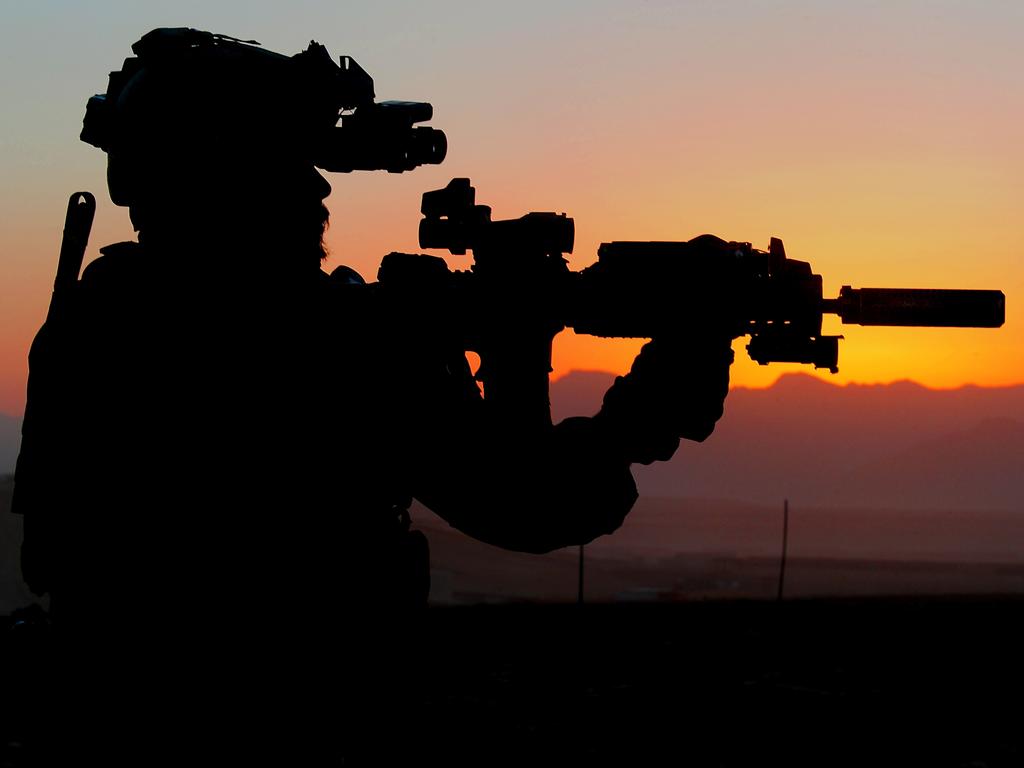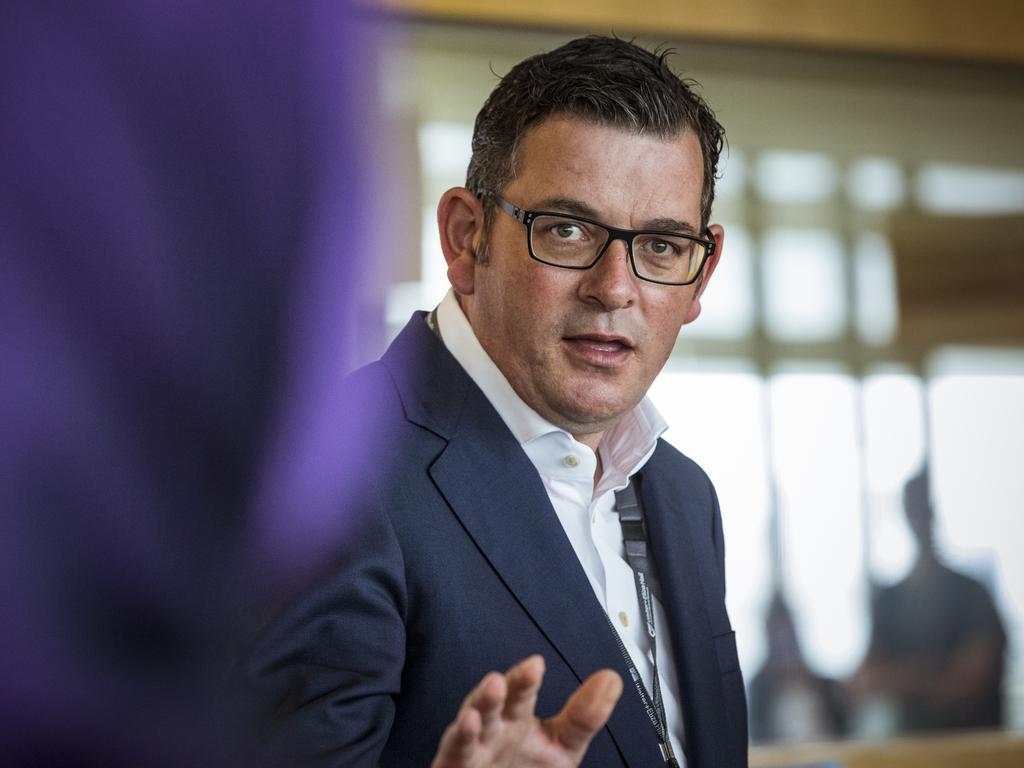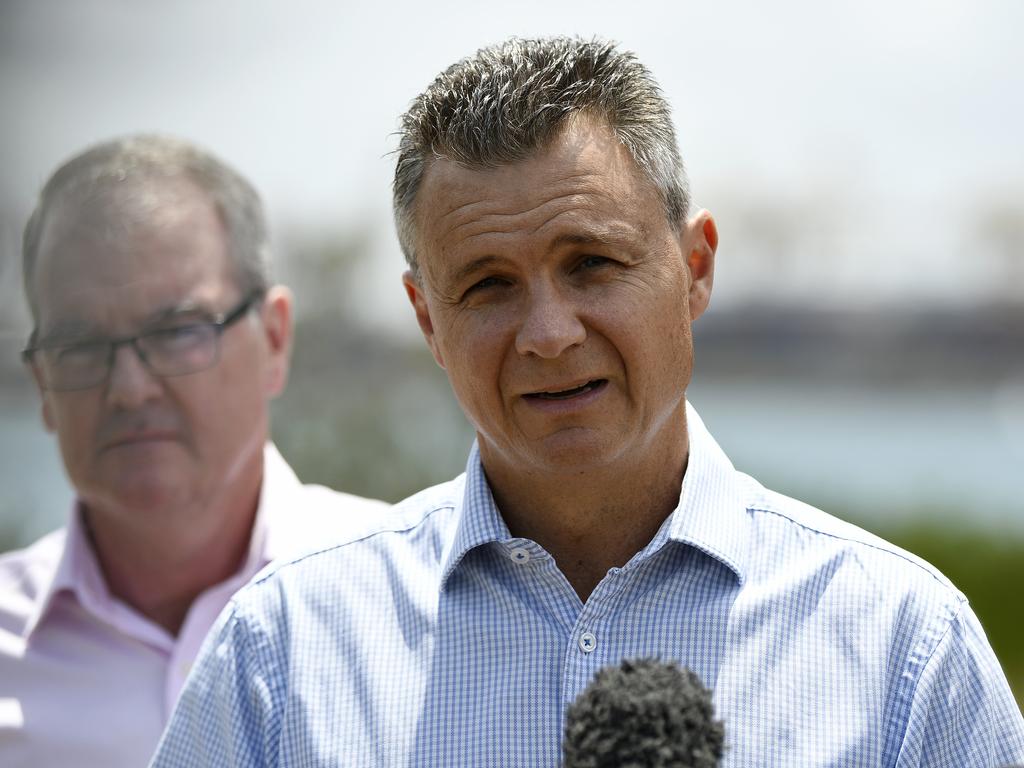Ex-SAS leaders face scrutiny by Defence chief Angus Campbell
ADF Chief Angus Campbell is working through a list of senior officers to determine who should be held accountable over war crimes allegations.
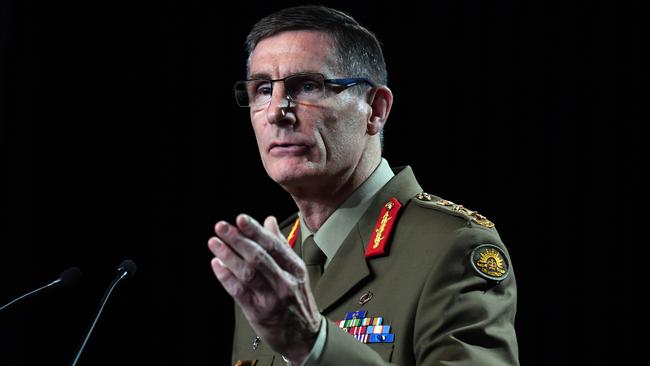
Chief of the Defence Force Angus Campbell is working through a list of dozens of senior officers who led special forces soldiers at the centre of war crimes allegations to determine which commanders should be held accountable and how they will be punished.
It includes former army chiefs, special operations commanders, task group leaders, Special Air Service Regiment commanding officers, and troop and squadron commanders.
Those on the list received command medals and other awards, including Orders of Australia, for their leadership of special forces soldiers allegedly involved in the murders of 39 Afghan civilians and prisoners identified in the Brereton war crimes inquiry.
Defence declined to comment on the document, saying it was working on “a comprehensive implementation plan” to act on the Brereton inquiry’s recommendations. But it has left open the possibility of demotions, sackings and the stripping of honours.
There is growing urgency to the process, amid a backlash over the stripping of Meritorious Unit Citations from 3000 special forces soldiers, and a warning from Scott Morrison that he expects senior officers to be held to account.
Former SASR commanders and those who held the role of Special Operations Commander Australia (SOCAUST) are likely to come under heavy scrutiny, Defence sources said.
Senior Defence leaders continued to authorise honours and awards for special forces commanders even after serious problems were uncovered in the elite military units, The Australian can also reveal.
General Campbell and Chief of Army Rick Burr — in their former roles as chief and deputy chief of army — approved a June 2015 Order of Australia for Lieutenant Colonel Greg Daley, who led SASR from 2012 to 2014.
The award — to “Lieutenant Colonel G” due to his protected identity at the time — said his “visionary leadership” of SASR “has directly led to the special operations community being viewed as the force of choice by government for sensitive and strategic missions”.
This was despite a March 2015 directive from then-Major General Burr acknowledging: “A series of recent notifiable incidents at SASR have demonstrated shortcomings in governance, security, safety and administration within SOCOMD (Special Operations Command)”.
Multiple sources have confirmed that when incoming SOCAUST Jeff Sengelman queried Perth-based SASR soldiers in June 2015 over the poor state of the regiment, one sergeant replied: “Sir, why are you kicking us in the arse when our former (commanding officer) just got a gong?”
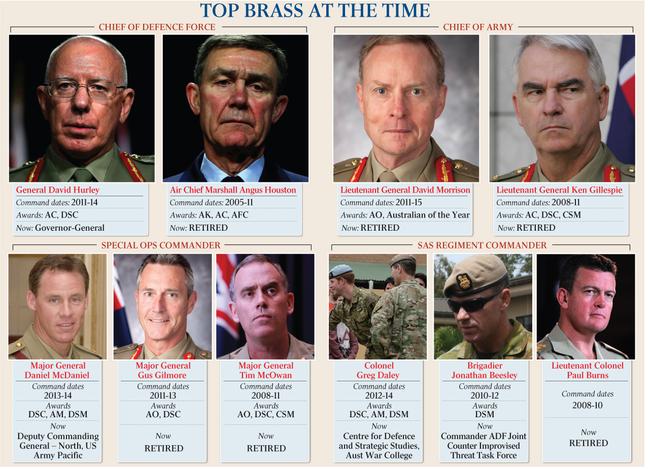
Colonel Daley’s former commander from September 2013 to December 2014, Major General Daniel McDaniel, was promoted in 2019 to serve as deputy commander of the US Army’s Indo-Pacific Command.
The Australian is not suggesting Colonel Daley or General McDaniel had knowledge of alleged war crimes committed by Australian soldiers in Afghanistan, only that they were in senior command roles during periods of identified cultural failings.
The Inspector General of the Australian Defence Force inquiry undertaken by NSW Supreme Court judge Paul Brereton found the alleged murders involving 25 current or former ADF personnel did not take place in “the heat of battle” and were instead the result of a perverted “warrior culture”.
While there was no credible information that troop, squadron and task group commanders knew or suspected that a particular alleged war crime was occurring, Justice Brereton concluded they should “bear moral command responsibility and accountability for what happened under their command and control”.
The report notes that “some domestic commanders of (the) SASR bear significant responsibility for contributing to the environment in which war crimes were committed” by allowing a “warrior culture” to develop.
At least 30 senior officers occupied command roles over the course of the war, either in Afghanistan or in Australia as SOCAUST or SASR commanders. The Brereton report found responsibility for the alleged war crimes he identified “does not extend to higher headquarters”, including the position of Middle East commander held by General Campbell from 2011-12. Defence last week issued “show cause” notices to 13 SASR soldiers implicated in alleged war crimes identified in the Brereton report — a right of reply before they are sacked.
But a Defence spokeswoman on Sunday said it would take time to deal fully with the complex matters set out in the report. “Where the inquiry report identifies credible information of alleged misconduct, disciplinary or administrative action may be taken,” she said.
“This may include actions to address command responsibility, culture, leadership and accountability at all levels in the chain of command.”
A spokesman for Defence Minister Linda Reynolds said the process “requires comprehensive consultation across government and relevant agencies”.
The now-retired Major General Sengelman, who declined to comment, identified cultural and command problems in SASR soon after he took the role of SOCAUST in December 2014 and relayed them to Lieutenant General David Morrison, the then-chief of army.
In an email to General Morrison in May 2015, General Sengelman warned of “serious endemic problems” with SOCOMD.
“This exposes Defence to a risk of not being able to undertake the range of special operations missions required to support Australia’s national interests,” General Sengelman wrote.
In a September 2015 letter to General Campbell, General Sengelman noted a longstanding culture of alcohol abuse in SASR had been tolerated by commanders. It included anonymous comments volunteered by soldiers detailing “systemic” consumption of alcohol on operations by soldiers and senior officers, and revealed the existence of an on-base pub known as the Fat Lady’s Arms.
One soldier said: “I drank alcohol contrary to army policy … I witnessed this behaviour at all levels of command and therefore was not of the opinion that what I was doing was wrong.”
The ADF has already abolished the SASR’s troubled 2 Squadron — one of four — after it was singled out amid.
But the Prime Minister said last week he wanted accountability not only for individual alleged war crimes “but also in the chain of command”. “That’s what I’ve made very clear through the Defence Minister, who has made that point to both the Chief of the Defence Force as well as the oversight panel,” Mr Morrison said.


